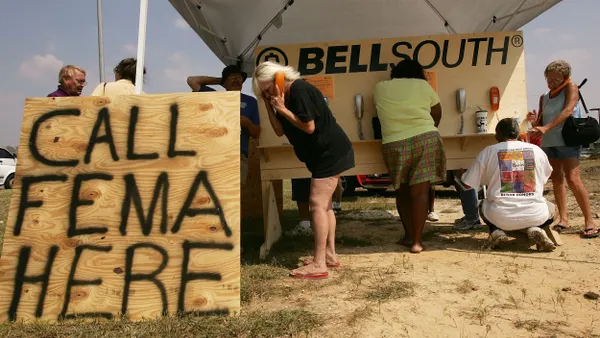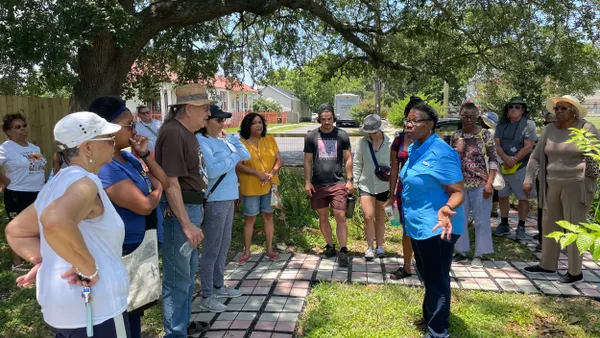Dive Brief:
- A coalition of 89 environmental justice and community organizations submitted a formal comment letter to the federal government Aug. 4 urging the Department of Energy to reinstate all National Environmental Policy Act regulations.
- DOE, as well as the departments of Transportation, Interior and Agriculture, rescinded their NEPA regulations on June 30 in keeping with President Donald Trump’s executive orders and a recent Supreme Court decision narrowing the scope of the law.
- While the regulatory recissions will streamline and expedite the NEPA process, cities will have less recourse “to challenge stuff that they don’t like,” said attorney Rafe Petersen, a partner in Holland & Knight’s Washington, D.C., office.
Dive Insight:
Considered the “Magna Carta of Federal environmental laws,” NEPA was established in 1970 to require federal agencies to assess the environmental impacts of proposed major federal actions before making decisions and to inform the public about their actions. The law created the Council on Environmental Quality to oversee NEPA implementation.
In January, President Donald Trump’s Unleashing American Energy executive order called for federal agencies to rescind NEPA regulations and to “prioritize efficiency and certainty over any other objectives, including those of activist groups” that could “add delays and ambiguity to the permitting process.”
On May 29, the Supreme Court ruled that NEPA reviews should evaluate only the direct effects of proposed projects, not “other future or geographically separate projects that may be built (or extended) as a result of or in the wake of the immediate project under consideration.”
The Supreme Court decision “limits requirements for agencies to analyze upstream and downstream Greenhouse Gas (GHG) effects and curtails radical climate change analysis associated with activities outside agency jurisdiction,” the DOE stated in a June 30 press release.
The ruling means that if DOE is building a pipeline, the agency must look only at the effects of building the pipeline, Petersen said. “You don’t have to look at ‘where does the natural gas come from?’ and ‘where does it go?’”
In short, Petersen said, rolling back NEPA means “there will be less red tape.”
In its letter, the coalition said rescinding the regulations “jeopardizes essential environmental protections, curtails public participation, and undermines transparency, cornerstones that communities across the country rely on to safeguard their health, environment, and well-being.”
The most significant impact for cities, Petersen said, is that federal agencies will no longer analyze federally funded projects under NEPA as they have in the past. “If a city is taking down $10 million as part of a cost-sharing federal highway, and the money doesn’t come with strings that require them to analyze traffic impacts, then there would be no NEPA review,” Petersen said.
Also significant is the Trump administration’s elimination of environmental justice review, which has been part of federal environmental review for decades but was never codified into law, Petersen said. “You’re going to have a higher level of deference to the agency’s decision if a community doesn’t like the decision,” he said.
In the case of building a highway, for example, the federal agency will likely look at the direct impact of pouring footers and building the highway, but not at “secondary and further removed effects,” such as “whether it cuts a neighborhood in half, or the growth-inducing impacts,” Petersen said.
KD Chavez, executive director of the Climate Justice Alliance, said rolling back NEPA threatens to dismantle community involvement in the permitting process. “When you think of working-class families on the front lines of climate crisis, you are fundamentally divesting from those communities having any input on what happens in their backyards,” Chavez said.
In the absence of NEPA regulations, Chavez advised cities to implement “mini-NEPAs,” state or local environmental review requirements and procedures. New York City, Washington, D.C., and a number of states already have these requirements in place.











